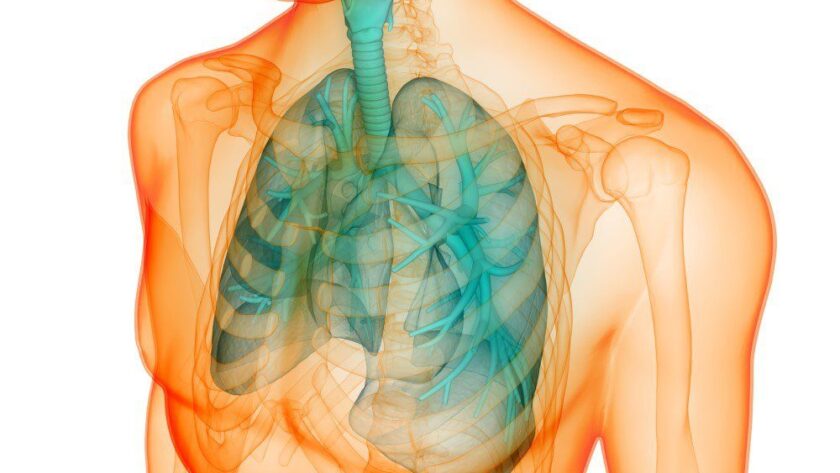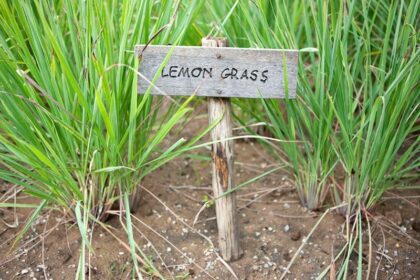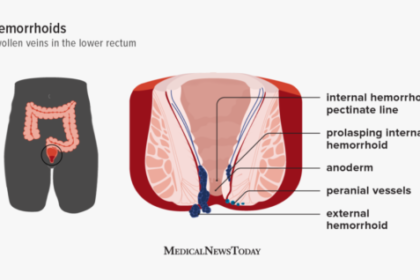In the intricate dance of daily life, the ability to climb stairs effortlessly is often taken for granted. However, for those grappling with weak lungs, this seemingly mundane task can pose a significant challenge.
The struggle to ascend and descend stairs can be a stark reminder of compromised respiratory health, affecting not only one’s physical well-being but also their overall quality of life. If you find yourself winded after just a few steps or frequently avoiding stairs altogether, it may be time to address and fortify your lung capacity.
In this article, we explore the connection between weak lungs and the difficulty of navigating stairs, shedding light on the importance of robust respiratory function. Beyond merely acknowledging the issue, we present three practical and achievable strategies to strengthen your breathing.
These simple yet effective techniques aim to empower individuals with weak lungs, providing a pathway to enhance their respiratory endurance and reclaim the freedom to move with ease. Whether you’re navigating a flight of stairs at home or confronting the daily challenges of an urban environment, these strategies offer a breath of fresh air in the pursuit of stronger lungs and improved well-being.
Understanding the Roots: What Causes Weakened Lungs Over Time?
Before delving into strategies for strengthening weak lungs, it’s essential to grasp the factors that contribute to their decline. Several elements can lead to diminished respiratory function over time. Chronic conditions such as chronic obstructive pulmonary disease (COPD), asthma, and interstitial lung disease can gradually weaken the lungs, impairing their ability to efficiently exchange oxygen and carbon dioxide.
Prolonged exposure to environmental pollutants, including cigarette smoke and air pollution, can also take a toll on respiratory health. Smoking, in particular, is a major offender, causing long-term damage to the lungs and increasing the risk of conditions like emphysema and chronic bronchitis.
Moreover, sedentary lifestyles and lack of regular exercise can contribute to weakened lung muscles. When the respiratory muscles are underutilized, they become less efficient in supporting the breathing process, leading to decreased lung capacity over time.
The Ripple Effect: What Other Effects Come with Weak Lungs?
The consequences of weakened lungs extend beyond the immediate challenge of stair navigation. Individuals with compromised respiratory health often experience a domino effect of related issues that impact both physical and mental well-being.
- Reduced Physical Endurance: Weak lungs limit the amount of oxygen that can be transported to the body’s tissues, resulting in decreased physical endurance. Everyday activities that demand even moderate exertion can become exhausting, leading to a sedentary lifestyle that further exacerbates the problem.
- Shortness of Breath: One of the hallmark symptoms of weak lungs is shortness of breath. Climbing stairs, walking briskly, or engaging in any activity that requires increased oxygen intake may trigger breathlessness, hindering normal daily functioning.
- Increased Risk of Respiratory Infections: Weakened lungs are more susceptible to respiratory infections. The compromised respiratory system struggles to fend off pathogens, making individuals more prone to illnesses such as pneumonia and bronchitis.
- Impact on Mental Health: The challenges posed by weak lungs can take a toll on mental health, contributing to feelings of frustration, anxiety, and even depression. The sense of limitation in physical abilities can lead to a decline in overall quality of life.
In recognizing these interconnected challenges, it becomes evident that addressing weak lungs goes beyond the desire for easier stair climbing- it’s about restoring vitality, resilience, and a sense of control over one’s health. The following section outlines three practical steps to embark on a journey toward stronger lungs and improved respiratory well-being.
Building Lung Resilience: 3 Strategies for Strengthening Weak Lungs
1. Aerobic Exercise:
Engaging in regular aerobic exercise is a cornerstone for enhancing lung strength. Activities such as brisk walking, jogging, cycling, and swimming stimulate the respiratory muscles, promoting improved oxygen intake and utilization. Aim for at least 30 minutes of moderate-intensity aerobic exercise most days of the week. As your cardiovascular fitness improves, so will your lung capacity, making activities like stair climbing more manageable.
2. Breathing Exercises and Techniques:
Conscious breathing exercises can work wonders for strengthening the respiratory muscles. Practice diaphragmatic breathing, also known as belly breathing, to ensure the optimal use of your diaphragm – the primary muscle involved in breathing. Additionally, pursed-lip breathing and deep-breathing exercises can help increase lung capacity and enhance overall respiratory function. Incorporate these techniques into your daily routine to gradually build endurance and improve breath control.
3. Lifestyle Modifications:
Certain lifestyle changes can contribute significantly to lung health. Quitting smoking, if applicable, is a paramount step in preventing further damage to the lungs. Creating a clean and well-ventilated living environment, free from indoor pollutants, also supports respiratory well-being. Adequate hydration is crucial, as it helps maintain the thin mucus necessary for effective lung function. Moreover, maintaining a healthy weight reduces the workload on the respiratory system, promoting better lung efficiency.
Improve Weak Lungs
Check Out Radiate 21
A Natural Boost for Respiratory Health
In the quest for stronger lungs, consider complementing your efforts with Radiate 21, a unique supplement harnessing the power of 21 natural botanicals and essential oils. Designed to promote cell renewal, enhance blood circulation, optimize oxygen absorption, facilitate lymphatic drainage, and support DNA repair, Radiate 21 serves as a holistic approach to respiratory well-being.
By incorporating Radiate 21 into your wellness routine, you provide your body with an additional layer of support for respiratory health. As with any supplement, it’s essential to consult with your healthcare provider before adding it to your regimen, ensuring it aligns with your specific health needs and goals.
In conclusion, the journey to stronger lungs involves a combination of intentional lifestyle choices, targeted exercises, and, where appropriate, the integration of supplements like Radiate 21. Armed with these strategies, you can embark on a path towards improved respiratory function, reclaiming the freedom to navigate stairs and embrace a life of enhanced well-being.






